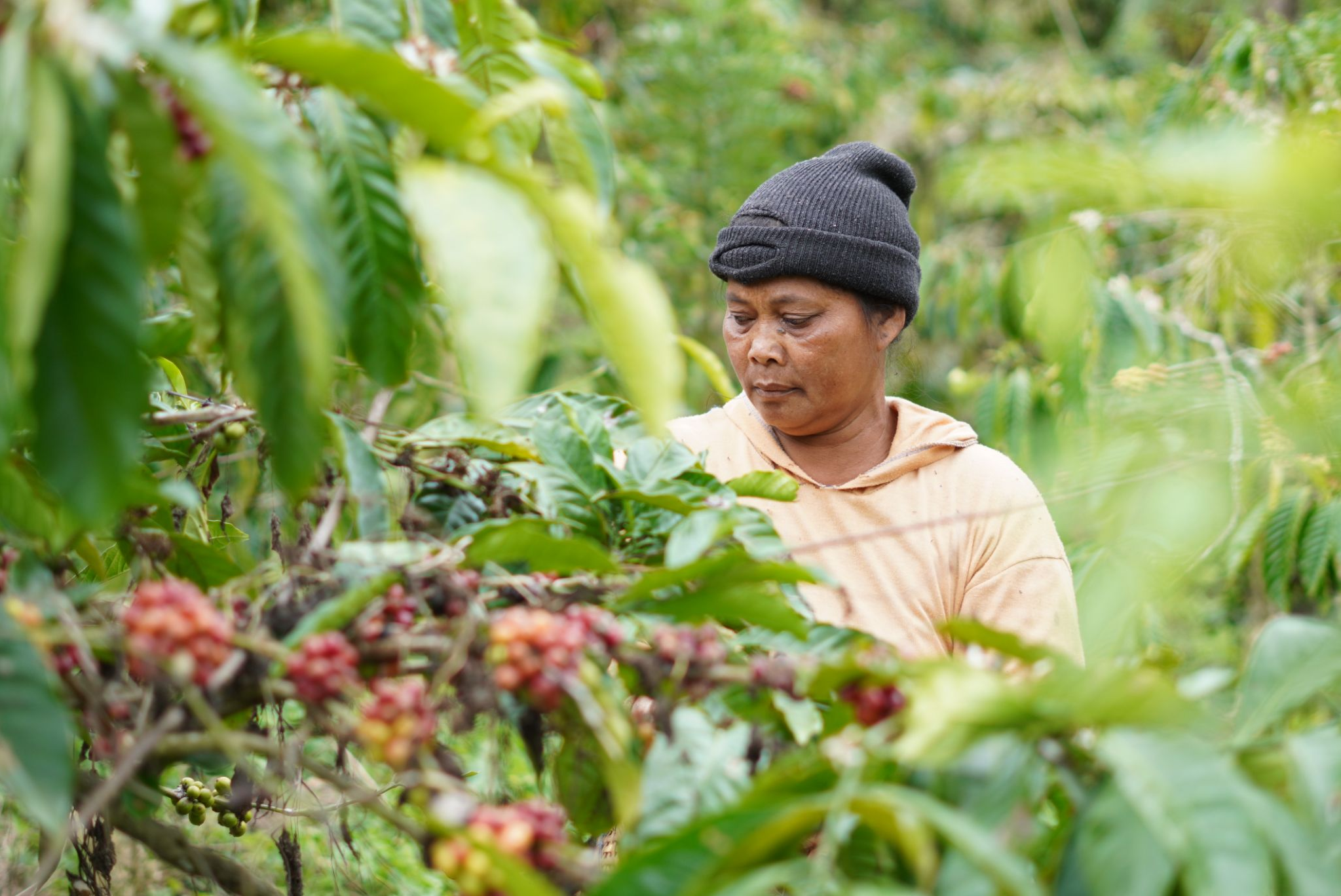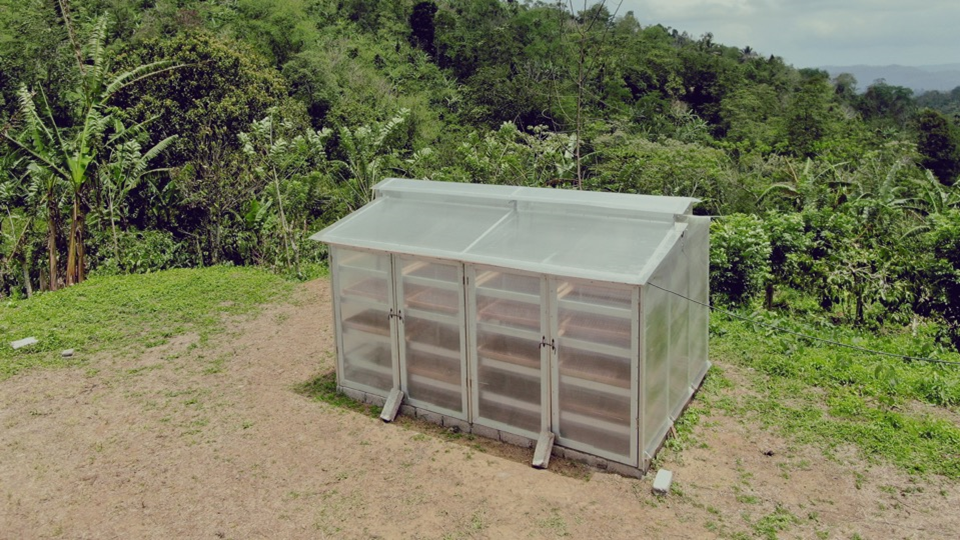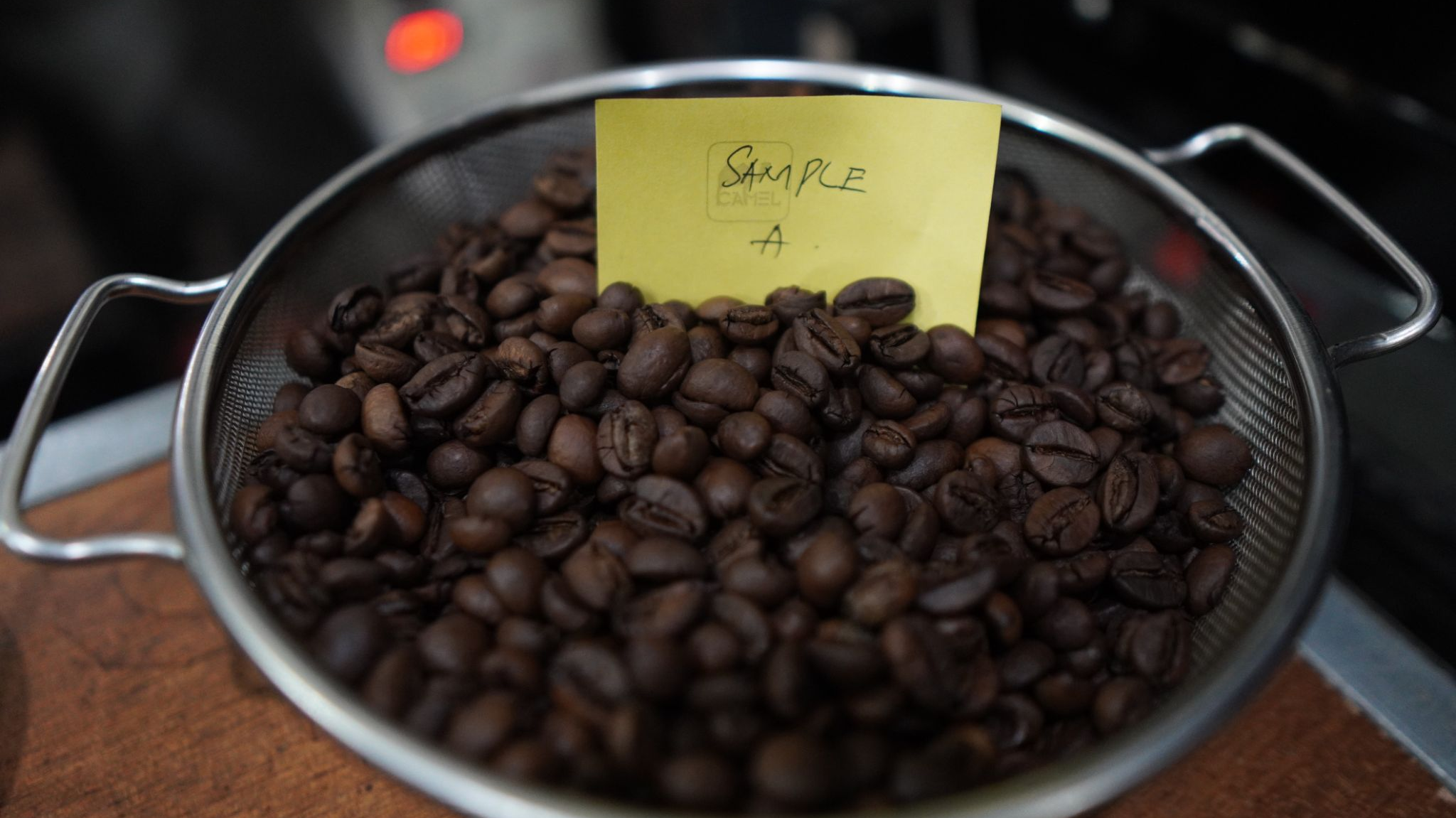For the past year, Kopernik has been working with smallholder coffee farmers in Tabanan, Bali to increase their productivity and improve their livelihoods.
In 2020, we conducted an experiment to improve the farmers’ post-harvest process by introducing the farmers to the ‘honey process’- a method that improves the quality of the dried coffee bean, solar drying technology as well as connecting the farmers to new markets. The results of the experiment showed that the improved post-harvest process resulted in a higher selling price of the coffee beans. We are now embarking on a new series of experiments so that more farmers have access to the improved post-harvest processing, as well as new interventions to further improve the quality of the coffee and establish sustained market access for the farmers.
We will be conducting three new experiments tackling different aspects of the post-harvest process and challenges faced by smallholder coffee farmers.
Coffee is one of Indonesia’s largest export commodities. According to the Bureau of Statistics, Indonesia exported 279,961 tons of coffee with an economic value of US$ 815 million. The socio-economic value of coffee is considered high in Indonesia with 96.6 percent of coffee plantations being owned by smallholder farmers. Tabanan regency, the largest coffee-producing region in Bali, has approximately 17,387 smallholder coffee farmers.

A farmer in Tabanan, Bali picking fresh coffee cherries from a tree.
With the effects of the COVID-19 pandemic impacting Bali’s economy and an increasing demand for Robusta coffee, there is an opportunity for smallholder coffee farmers to improve their post-harvest process and increase their income through sustainable farming practices, opening access to higher-end markets, and involving youth in the coffee industry.
The three new coffee experiments include:
- Capacity building for smallholder coffee farmers and youth
Agricultural production systems have changed dramatically shifting to intensive farming methods. Farming systems are often based on the removal of forest and replacing tree crops with fast-growing annual crops. These intensive farming methods rely heavily on the use of chemical pesticides and fertilizers which can lead to hardened soils, decreased fertility, polluted air and water, and the release of greenhouse gases. This results in farmers being trapped in a cycle of low farm productivity and low income, that are compounded by unpredictable weather patterns.
Fewer Indonesians find farming an attractive and promising livelihood option, with the majority of the younger generation considering farming as very labor-intensive and suited to uneducated and low-skilled segments of the population. There is however interest in coffee-related businesses among young people and this could be an effective entry point to get the younger generation involved in the agricultural sector.
This experiment will focus on the provision of capacity-building training for existing smallholder farmers as well as young people. Through this initiative, we expect farmers to gain new knowledge and skills on sustainable agriculture and adapt it to their coffee farming practices. For the youth group, we expect them to develop a better understanding of sustainable coffee value chain and gain further interest in the coffee industry. - The establishment of a coffee innovation hub
Our previous experiment concluded that more smallholder coffee farmers require access to post-harvesting tools and technologies. Through establishing an innovation hub with post-harvesting facilities will provide increased access to training and tools to improve the coffee post-harvest process. Providing access to solar drying technology to more coffee farmers.
Providing access to solar drying technology to more coffee farmers.
The innovation hub will support farmers and function as an agri-processing center which will enable access to tools and technologies in the post-harvest stage and introduce new practices for processing coffee beans that can lead to a higher value in the market.
The innovation hub will also provide smallholder coffee farmers with technical support on sustainable farming and market access. - Connecting smallholder coffee farmers to new and higher-end markets
The agriculture sector plays a significant role in Indonesia’s economy (contributing 13% to annual GDP in 2020), the nation’s 18 million smallholder farmers remain as disadvantaged actors in the agricultural chain. Despite their significant economic contribution, the majority of smallholder farmers still live below the global poverty line. A better post-harvesting process will increase the value of coffee beans in the market.
A better post-harvesting process will increase the value of coffee beans in the market.
We will support smallholder coffee farmers to produce better quality products, improved packaging, and connect them to higher-end markets. We will also facilitate partnerships between farmers’ groups and coffee buyers.
We will assist the smallholder coffee farmers in branding, packaging, promotion, and marketing of the coffee products.
More detailed information on the coffee experiments can be accessed directly through each of the project profiles. We are currently crowdfunding for these projects through our website. You can browse and support the projects through this link.


